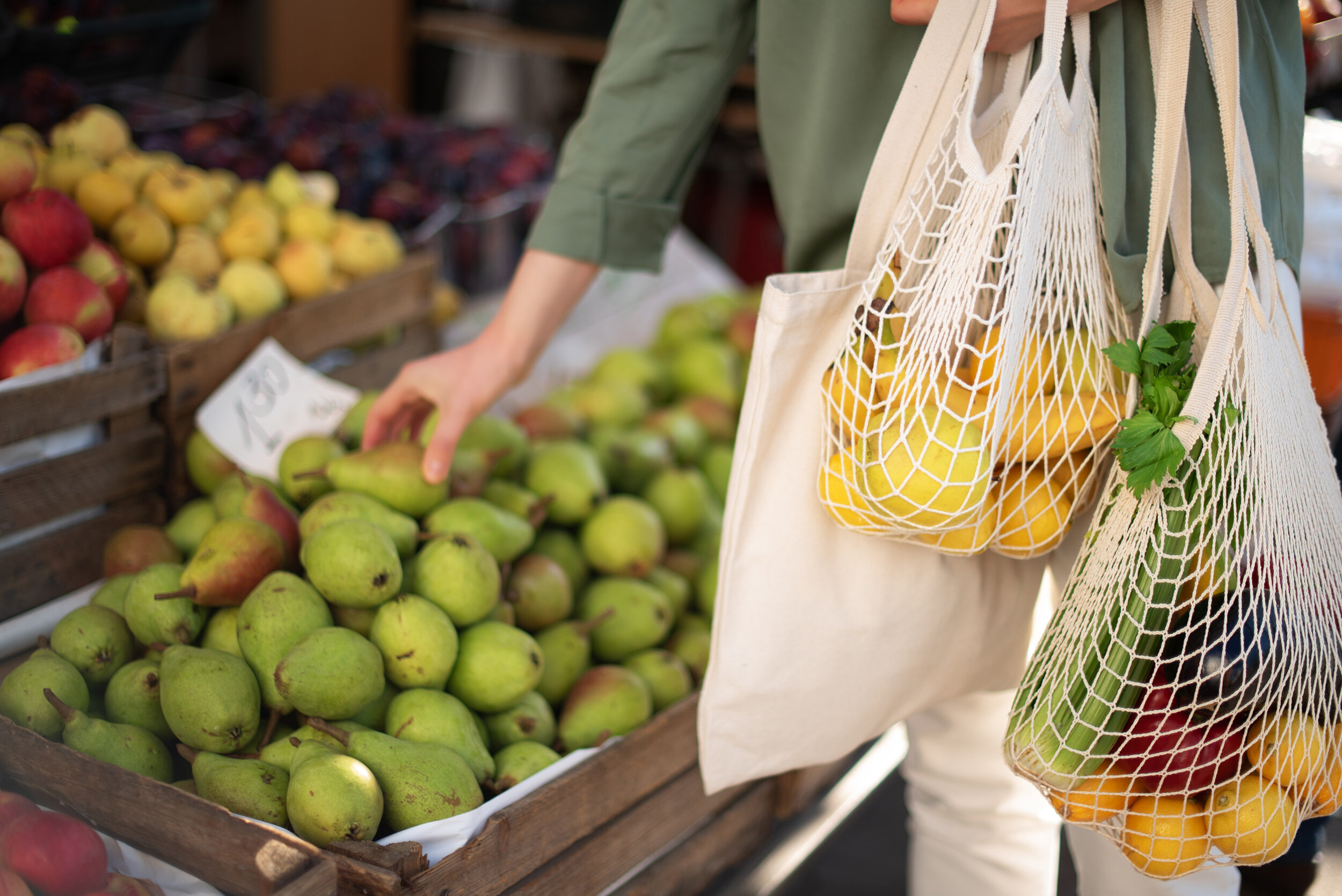10 Hacks for Sustainable Grocery Shopping
Sustainable Grocery Shopping
National Geographic UK recently named Denver the fourth most sustainable destination in the world. Like we needed another reason to love our city?
Denver’s ranking is based on policy-level shifts that have made our community a greener place. (Voting: It does a planet good.) There’s no question those big-picture changes are the number-one way we can impact climate change and take care of Mother Earth. But even little things can make a big difference for the environment, and we’ve talked about a bunch of them:
This week, we’re bringing you 10 hacks for sustainable grocery shopping. (Stick around to the end to get a reusable bag on us!)
FREEBIE ALERT! Keep reading…(we know it’s a LOT of words, but it’ll be worth it).
#1 Start small.
Don’t try to go vegan, zero-waste, organic, and local-only all at once! Change one thing about your shopping at a time. If you buy eggs every week, opt for the ones packaged in cardboard instead of Styrofoam. Then next month, only purchase pasture-raised meats. We all want to make a difference fast, but sustainable change (heh) happens slowly. Take your time!
#2 Reduce food waste.
Food waste has a huge impact on our carbon and water footprints, land use, biodiversity, and economy. Taking small steps to decrease our food waste makes a huge impact. Planning well and buying only what you need are great first steps.
#3 Reduce food loss.
Food loss is when a grocery store throws out unpurchased food. An easy fix? Buy the ugly fruits and veggies most people won’t touch. That way those misshapen apples or warty squashes don’t get dumped.
#4 Prioritize quality ingredients.
Industrial farming is bad news for Mama Earth. According to the UN, modern farming practices are “fundamentally at odds with environmental health.” Yikes.
Supporting farmers and companies that use responsible and sustainable practices—pasture-fed, free-range, and so on—makes a world of difference (literally). Be careful about words like “all-natural,” though, since there’s no single definition or oversight. Instead, look for third-party certifications.
#5 Go organic.
Conventional agriculture focuses on max crop yield at the expense of the surrounding environment. Most of the time this means using nasty pesticides or other chemicals to essentially environment-proof their fruits and veggies. But that comes with a whole bunch of unwanted personal-health and nature-impacting side effects.
Try purchasing more organic products to improve your impact on the environment. Of course, it’s no secret that buying organic is stupid expensive sometimes. So check out the Environmental Working Group’s Dirty Dozen and Clean 15 to find out what fruits and veg you really need to buy organic and which ones can be regular-shmegular.
#6 Practice Meatless Mondays.
Getting from whole cow to bacon cheeseburger takes a lot of energy, which means eating a more plant-based diet improves our environment. Making even a one-night-a-week commitment to a veggie-packed dinner can help reduce your footprint.
#7 Support local farmers.
Supporting regional growers does two really important things. First, you decrease food transportation (and thereby a whole lot of emissions and energy) by buying what’s in season. Second, you put your money where your values are. Over time, that takes power away from mega-corporations that care more about their revenue than the planet.
#8 Avoid packaging.
Single-use plastics are a major pollutant. To decrease your packaging consumption, try:
Purchasing less of those processed, packaged convenience foods.
Buying a larger size of a pantry staple or sure-to-be-consumed food.
Bulk-buying nonperishables like oats, nuts, beans, and coffee grounds.
Finding a new brand that uses more sustainable packaging.
Shopping at a new store that focuses on sustainability—like Zero Market, right here in Denver.
#9 Skip the grocery store altogether.
HelloFresh is a meal kit delivery service that sends pre-portioned, fresh ingredients and easy-to-follow instructions to your doorstep. They boast a pretty impressive positive impact on food waste, carbon emissions, and single-use plastics compared to traditional grocery shopping. They also always have deals for new customers, so it’s worth checking out!
#10 Remember your reusable grocery bags!
You have enough plastic grocery bags piled up in your pantry. Take a break and use a reusable bag instead. It’s better for the environment aaaand some places even pay you to use them. It’s a win-win!
FREEBIE ALERT! Congrats! You made it!
Image: Public Goods Website
Need to kickstart or add to your reusable bag collection?
We’ve got you! Tell us who you are, and we’ll send over a reusable Public Goods bag.
PLEASE SEND ME A PUBLIC GOODS BAG!
Want to chat more? Book a Discovery Meeting and let us know what’s on your mind.


